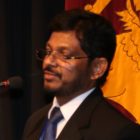About us
The sea connects us all.
For more than 50 years, The Nautical Institute has supported the global maritime community by promoting professionalism, safety and best practice at sea and ashore.
As an educational charity and global membership organisation with consultative status at the International Maritime Organization, we represent maritime professionals and seafarers worldwide.
With a global network spanning over 50 countries, we connect experience, expertise and leadership to shape a safer, more sustainable shipping industry.
- To provide the strongest possible professional focus, dedicated to improving standards of those involved in control of seagoing craft, while maintaining the Institute as an international centre of nautical excellence.
- To represent the professional views of the Institute's members to and within the international, national and local bodies considering the safety and efficiency of shipping operations.
- To promote and co-ordinate in the public interest the development of nautical studies in all the Institute's branches by :
- Encouraging and promoting a high standard of qualification, competence and knowledge among those in control of seagoing craft including non-displacement craft.
- Facilitating the exchange and publication of information and ideas on nautical science, encourage research and publish its results.
- Establishing and maintaining appropriate educational and professional standards of membership.
- Co-operating with Government Departments and other bodies concerned with statutory and other qualifications, and with universities and other educational institutes and authorities in the furtherance of education and training in nautical science and practice.
- Encouraging the formation of branches and professional groups in different areas worldwide.
Executive Board
Composed of 8 to 15 Trustees elected by Council, the Executive Board meets 3 or 4 times per year and is the ultimate decision making body for the Institute. It is tasked to develop and implement the Strategic Plan, manage the affairs of the Institute on behalf of the members, and appoint and oversee the performance of the Chief Executive.
It may delegate powers to committees but remains responsible for policy decisions, monitoring progress against plans, issuing an annual report and audited annual accounts. The Trustees must also discharge their statutory and legal responsibilities as Company Directors. Any submissions under the Institute’s Disciplinary Guidelines will be handled by the Board. A sub-committee of Trustees specialises in Financial and Audit matters. The Nautical Institute maintains standards through its committees which mostly report to the Executive Board.
Council
The principal responsibility of Council is to elect the Trustees and ensure delivery of the Constitutional objectives of The Nautical Institute, assurance of performance and assessment of risk. Council also acts as an advisory body to the Executive Board and the specialist committees due to its larger, international composition (35 to 56 members) drawn from many sectors of the maritime industry.
At least 40% of elected Council members must be actively employed in a seagoing capacity. Important functions are strategic oversight and input to the management process and to consider/approve Strategic Plans prepared for the Executive Board by its committees. In so doing it will ensure exploitation of the full range of expert advice available in the international members. The Assurance and Nominations committees report to Council.
Younger Members' Council
The Younger Members' Council (YMC) was formed in 2019 and comprises members under the age of 36.
It was set up to facilitate engagement, representation and the professional development of members at the earlier stages of their career; and to offer mentoring support, advice and experience-based insight on behalf of our global membership to those beginning their careers at sea - and to those pursuing a different path.
The YMC reports directly to Council, and provides updates based on its own work and its interaction with branches, member ambassadors and other committees and groups of The Nautical Institute.
Membership of the YMC is reviewed annually, and the group meets at regular intervals to discuss and develop its input into a wide range of new and ongoing initiatives.
All enquiries should be sent to [email protected]. The current Chair is James Edwards MNI.
Assurance Committee
Nominations Committee
Composed of 12 members and reporting to Council, it is tasked to assess candidates for nomination as prospective members: of the Council and its committees; of the Executive Board; and as Chairmen, and where appropriate Vice-Chairmen, of the committees.
This will entail effective succession planning and recommendations to Council. Standards and candidates for Fellowship and Honorary Fellowship are also assessed by this committee so as to make recommendations to Council and the Executive Board. It is also responsible for developing further criteria and procedures, if necessary, for election to and dismissal from the Executive Board.
Technical Committee
Professional Development Committee
IMO Committee
This committee will normally meet once per year to formulate, on behalf of the Executive Board, the policy of the Institute on matters to be debated and worked on at the IMO. The committee also oversees the work of the Institute delegation to the IMO and liaises closely with the Chief Executive and Head of Delegation to ensure the Institute makes an effective contribution to the work of the IMO on the basis of evidence gathering from the membership.
A key responsibility of the committee is to select the subject matter that is most important for the Institute to contribute to the IMO. The committee provides a summary report of the Institute’s activities at the IMO to Council and the Executive Board on an annual basis, and it is considered that substantial electronic communication between the members of the committee is necessary throughout the year. Members of this committee are directly elected by Council for 3 years and may be re-elected for further 3 year periods.
Staff
The Nautical Institute’s Branches are grouped into regions of the world, and act as its semi-independent global ambassadors.
The principal aim of the Branches is to promote the activities and increase the membership of The Nautical Institute in their area.
The Branches are vibrant, pro-active and outwardly engaging organisations run by members for members, and provide:
- A local/regional maritime focus
- Communication and networking opportunities with other like-minded professionals
- Solutions to contemporary industry issues through seminars and workshops
- A programme of technical and social events
- Representation on regulatory bodies and industry user groups
- Assistance with skills training and CPD
- Involvement in local, regional and international NI projects
- Support in developing management and organisational skills.
You can see a full list of our branches here
Diversity & Inclusion Pledge
The Nautical Institute, as the global body for maritime professionals, pledges its commitment to encourage, support and celebrate a diverse and inclusive maritime industry, including gender, race, ethnicity and age. Furthermore, The Nautical Institute pledges to embrace equal opportunities and visibility in all activities of the Institute.













